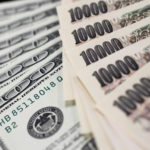Australian dollar continued to lose ground against its US counterpart during the late phase of US trade on Friday, after Reserve Bank of Australia (RBA) board member Heather Ridout said an exchange rate for the Aussie around 80 U.S. cents would be a fair deal for everybody, including export and import-oriented companies. At the same time, the Banking Regulatory Commission in China ordered an increased scrutiny of credit risks in the coal-mining sector.
AUD/USD hit a new daily low at 0.8660 at 11:12 GMT, also the pairs lowest point since July 19th 2010, after which it closed at 0.8683 on Friday, plunging 0.97% for the day, while the weekly loss was 1.10%. Support was likely to be received at July 19th 2010 low, 0.8634, while resistance was to be met at Fridays session high, 0.8775.
The Chinese Banking Regulatory Commission’s order did not mention concerns that a 3 billion yuan (or 496 million USD) trust product distributed by Industrial & Commercial Bank of China Ltd. may default after the coal miner, which borrowed these funds collapsed, Bloomberg reported today. This news influenced the Australian currency, because China is Australia’s largest export market.
In addition, Reserve Bank of Australia board member Heather Ridout said that the national currency had still room to depreciate, according to the Wall Street Journal.
The yield on Australian three-year government bonds fell 15 basis points, or 0.15 percentage point, to reach 2.82% on Friday, marking the most considerable move on a daily basis since September 19th.
Meanwhile, demand for the US dollar continued to be underpinned by a recent string of optimistic reports, which boosted the case of further cuts in Federal Reserve’s monthly monetary stimulus.
The Bureau of Labor Statistics reported on Thursday that the number of initial jobless claims in the United States rose by 1 000 to 326 000 in the week ended January 18th, from a revised down number of 325 000 during the previous week. Analysts had expected that the people who filed for unemployment assistance will increase to 330 000.
A separate report said that existing home sales in the country increased 1.0% to the annualized 4.87 million units in December, following a three-month streak of declines. According to data by the National Association of Realtors (NAR), existing home sales reached a seven-year high in December 2013 compared to December 2012.
During the whole 2013 sales increased to 5.09 million units, or a 9.1% gain in comparison to the whole 2012. Experts had anticipated that existing home sales will reach the annualized 4.93 million units in December. November’s result has been revised down to 4.82 million from 4.90 million previously.
The average home price in the country was 198 000 USD in December 2013, or a 9.9% increase in comparison with the same month a year ago, which came as a result of weaker supply in the sector.
Elsewhere, EUR/AUD cross closed at 1.5753 on Friday, rising 0.86% on a daily basis. AUD/NZD pair closed at 1.0570, gaining 0.09% for the day.





